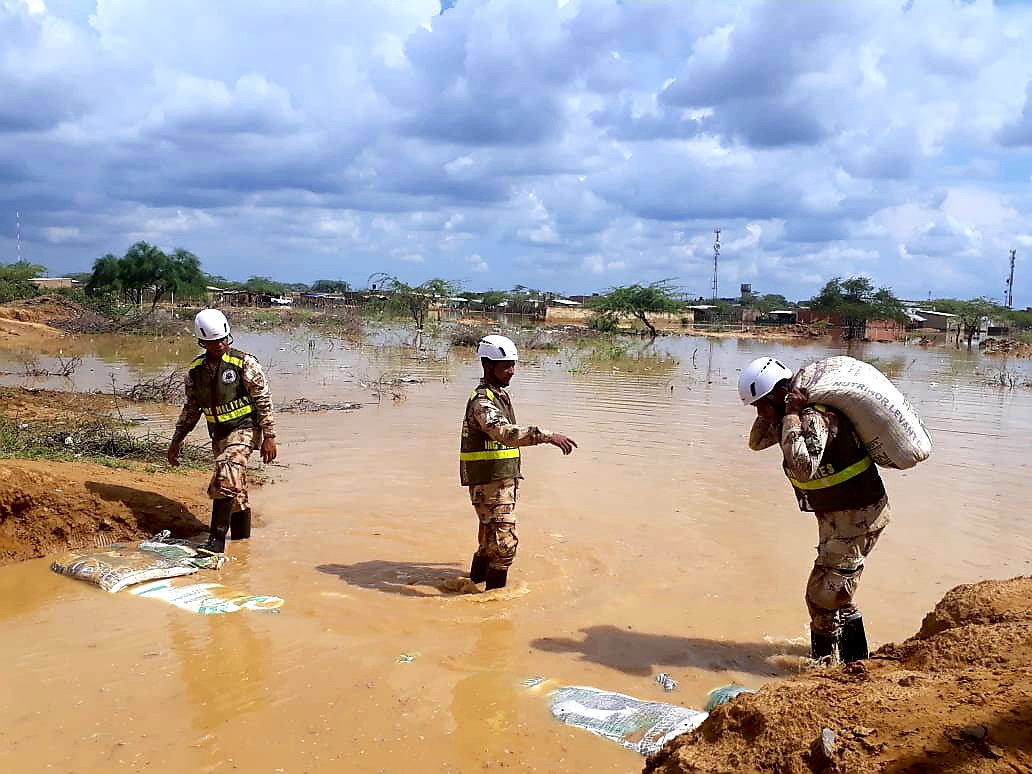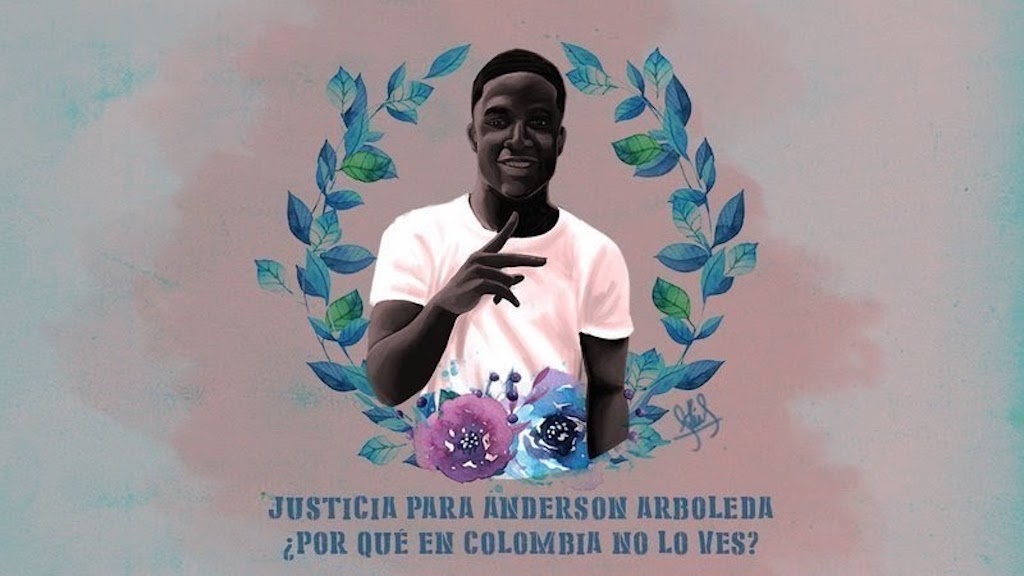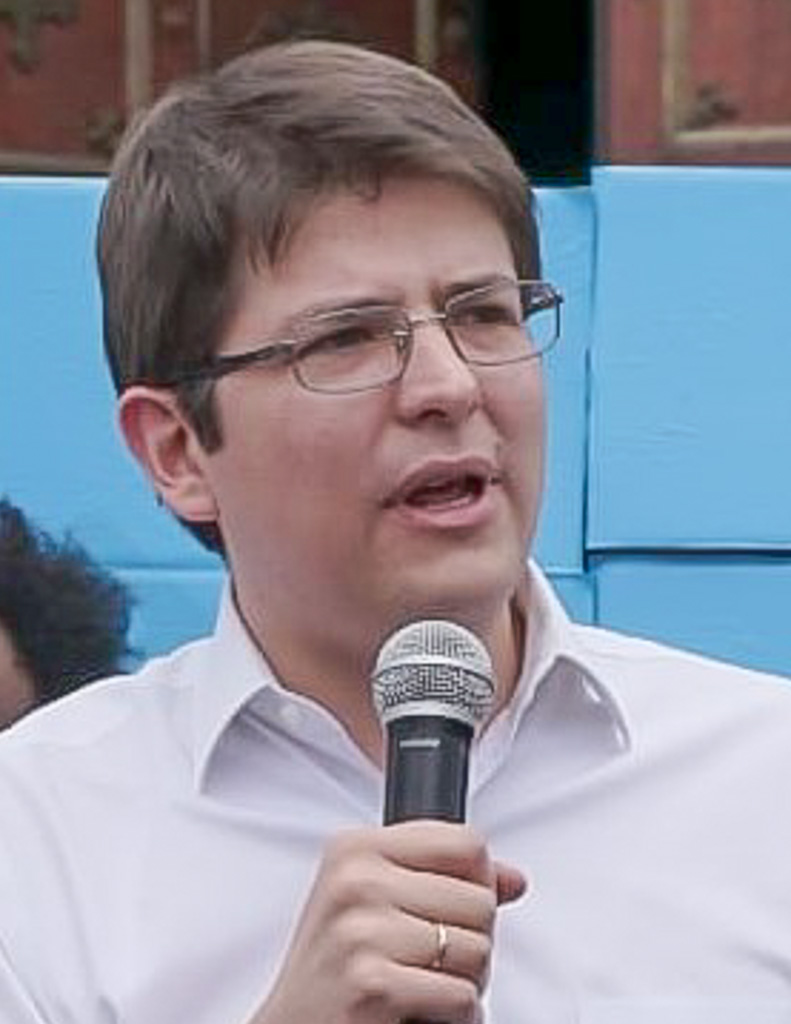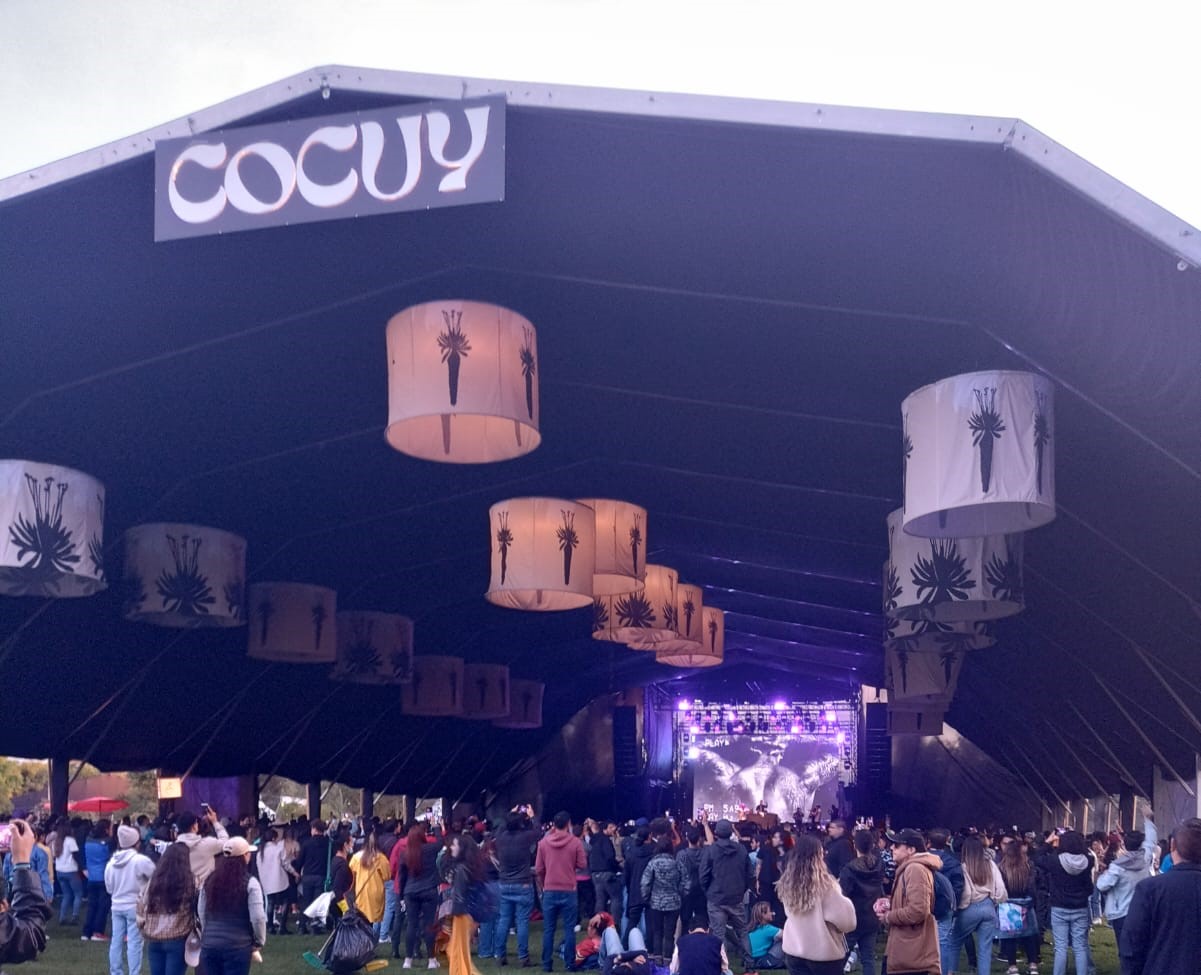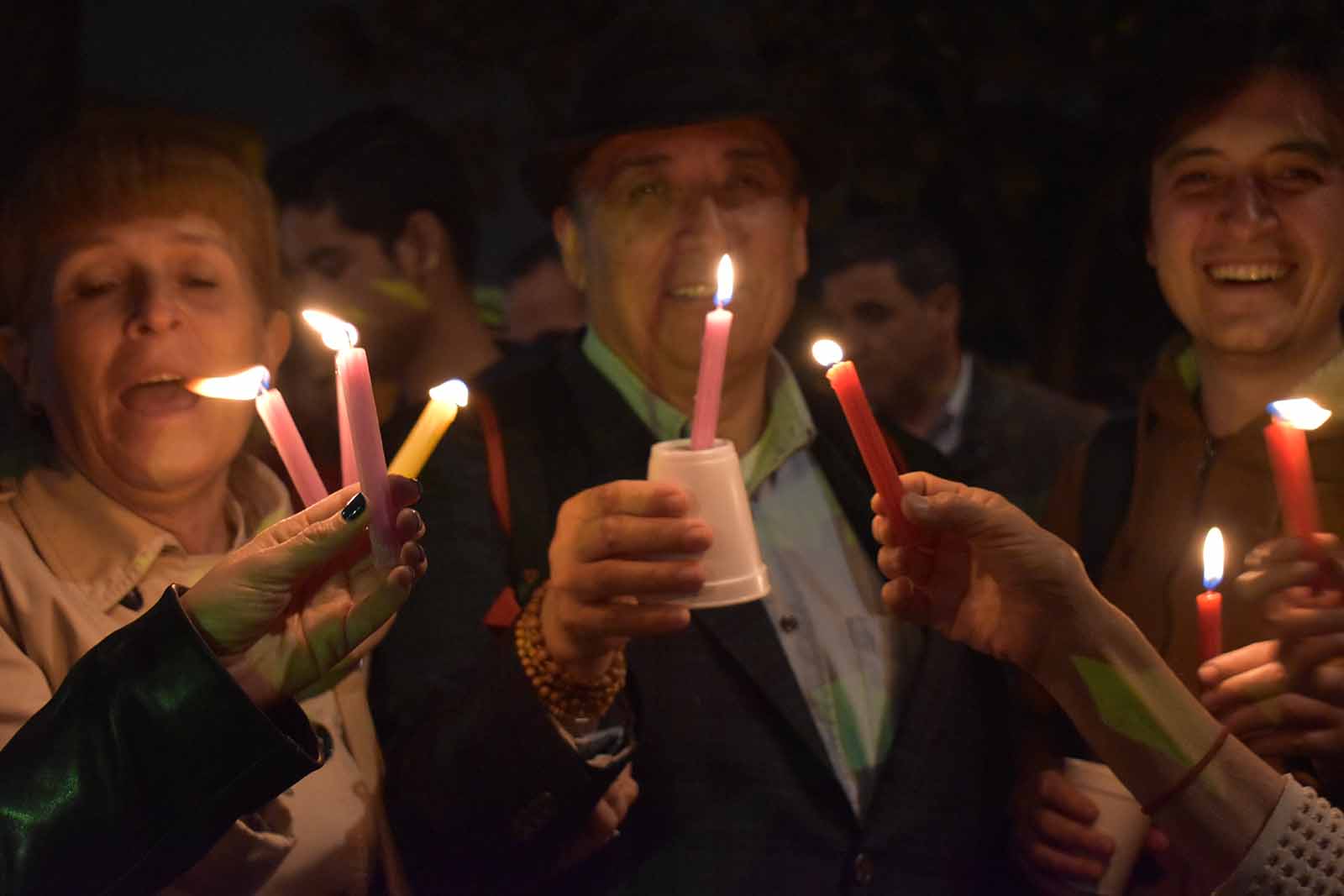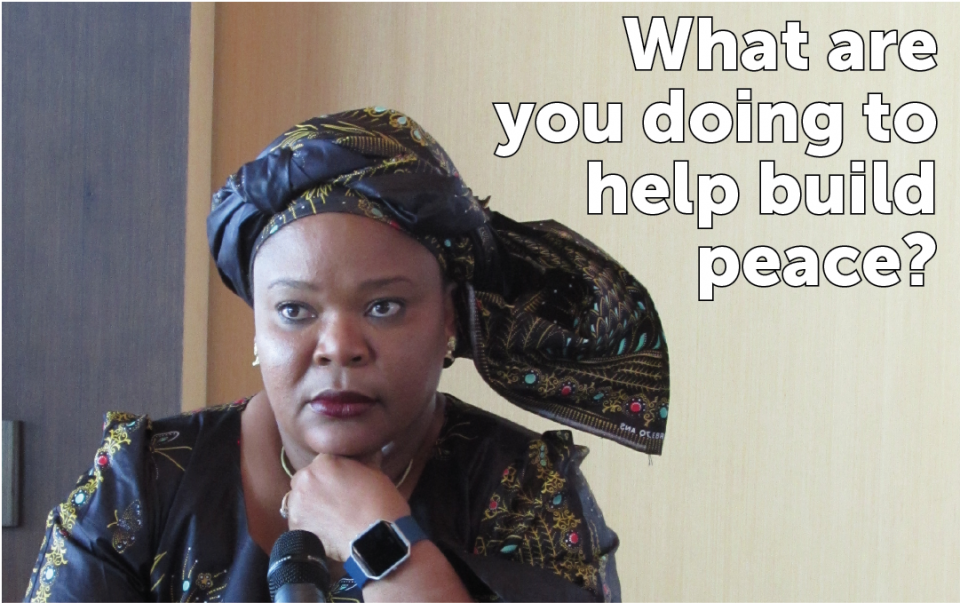
“Usually when peace agreements have been signed between governments and insurgents, the communities that had been fighting for this process relax. That is the danger […] we need to sustain the process.” – Leymah Gbowee, Liberian peace activist, 2011 Nobel Peace Laureate. Photo: Cámera de Comercio
The opening ceremony at the 16th World Summit of Nobel Peace Laureates brought a powerful message of peace, forgiveness and inclusion. Ex-combatants dressed in white walked and danced around the stage to the words of Gabriel García Márquez then passed white ribbon through the crowd before leaving their final message: “We are going to weave peace.”
For the first time ever, the World Summit of Nobel Peace Laureates took place in the home country of the most recent awardee, President Juan Manuel Santos. At the opening session he was both celebrated and cautioned, as the laureates praised his achievements in getting peace signed, yet also warned of the myriad difficulties that the country would face on the road to implementation.
Colombia’s commitment to inclusion was certainly on show at the opening ceremony with music, dance and poetry that paid homage to Colombia’s afro and indigenous populations.
Santos talked about what peace meant to him – adversaries fighting on the battlefield coming together in dialogue to deal with their differences. “To change rifles for words, bullets for ideas, armed struggle for democratic debate, hatred for reconciliation.” He said, “That’s what peace is about.”

The collection of distinguished guests who came to share their experiences stand for the national anthem with President Santos and Mayor Peñalosa.Photo: Cámera de Comercio
The president also took advantage of the opportunity to announce the release of the hostage Odín Sánchez paving the way for formal peace negotiations with the ELN. All was met with rapturous applause from the audience.
Although founder Mikhail Gorbachev dropped out at the last moment, there were 11 laureates on stage for the opening session, as well as representatives from 18 organisations that have been awarded the prize.
The laureates present were: Colombian President Juan Manuel Santos; Liberian women’s activist Leymah Gbowee, former prime minister of Northern Ireland Lord David Trimble; Guatemalan indigenous activist Rigoberta Menchú; former president of Costa Rica Oscar Arias Sánchez; Polish ex-president Lech Wałęsa; former president of East Timor José Ramos-Horta; Iranian human rights advocate Shirin Ebadi; Yemeni journalist Tawakkol Karman; US anti-landmine activist Jody Williams and Indian child and education advocate Kailash Satyarthi.
In addition to the international guests, the Colombians were well represented, even including a surprise visit from chief FARC negotiator Iván Márquez, which showed the organisers commitment to airing a range of views on conflict resolution.
Over the three days there were dozens of events, not only the sessions themselves, but also more intimate gatherings where the laureates spoke directly to community leaders and students.
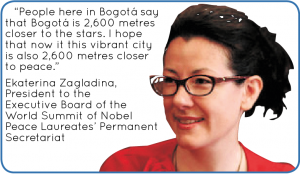 Speakers tended to stick to the spirit of sharing their own experiences rather than telling Colombia what to do, which made sense since not all of them had an in-depth knowledge of the peace deal. As Leymah Gbowee said at the start, it would be “very arrogant to think you can arrive in a country and tell them what to do. Every country has its context.”
Speakers tended to stick to the spirit of sharing their own experiences rather than telling Colombia what to do, which made sense since not all of them had an in-depth knowledge of the peace deal. As Leymah Gbowee said at the start, it would be “very arrogant to think you can arrive in a country and tell them what to do. Every country has its context.”
As Bogotá was crowned the city of peace and the beacon of hope for Colombia for the next year, a number of themes came through again and again – from the challenges of implementation to the importance of victims rights, the need for civil participation and the power of young people.
As president of the permanent secretary of the world summit Ekaterina Zagladina said, “People here in Bogotá say that Bogotá is 2,600 metres closer to the stars. I hope that now this vibrant city is also 2,600 metres closer to peace.”
We explore four key topics of the event here:
Two and a half minutes to midnight – A time for the guests to contemplate some of the major issues facing the world right now
Hey Laureate! Leave them kids alone! – Time and again over the four days of the summit, we hear the familiar refrain that the youth are the future
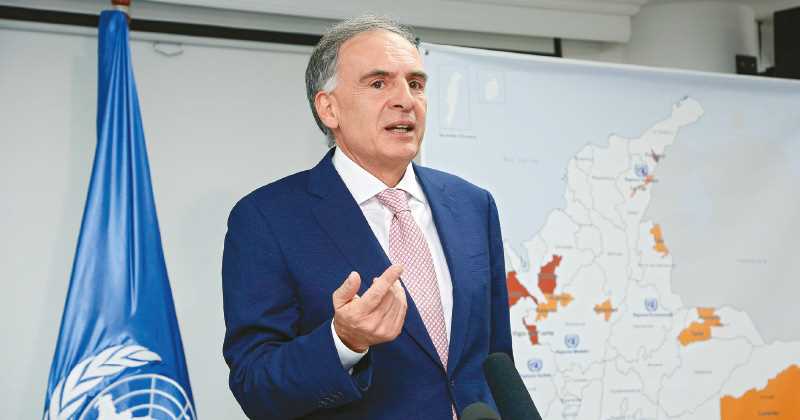
Jean Arnault, head of the UN mission in Colombia, stressed the “importance of victims not as beneficiaries but as participants.”
The key to a lasting peace
Experts weigh in on the importance of civil participation during the implementation of the peace process. Madeline Walsh reports.
Across the array of panel discussions at the 16th World Summit of Nobel Peace Laureates, speakers from diverse fields emphasised that peace, far from emerging spontaneously as the product of signed accords and discarded weapons, is a reality that can only be fostered and maintained with the genuine participation of civil society.
This focus on the need to engage citizens and non-governmental organisations in active, vigilant advocacy for peace, came largely as part of a broader discussion of implementation challenges inherent in peace processes around the world. Colombia will have its particular challenges as the country embarks on its own transition, where public support for the process has been lukewarm, at best. Even chief FARC negotiator Iván Márquez acknowledged that “implementation is more difficult than years of negotiation”.
Former East Timorese leader José Ramos-Horta reflected on the road ahead in the implementation of a “stable and durable” peace, which he reminded us “has to be built bit by bit.”
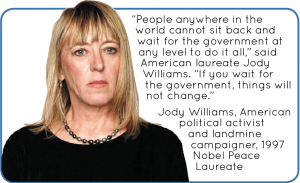 Speakers also warned against believing that state institutions have already achieved peace or will be able to achieve it single-handedly without consistent community mobilisation. “People anywhere in the world cannot sit back and wait for the government at any level to do it all,” said American laureate Jody Williams. “If you wait for the government, things will not change.”
Speakers also warned against believing that state institutions have already achieved peace or will be able to achieve it single-handedly without consistent community mobilisation. “People anywhere in the world cannot sit back and wait for the government at any level to do it all,” said American laureate Jody Williams. “If you wait for the government, things will not change.”
Others, like Liberian laureate Leymah Gbowee, also cautioned against complacency: “Usually when peace agreements have been signed between governments and insurgents, the communities that had been fighting for this process relax. That is the danger (…) we need to sustain the process.”
This tendency to consider peace solely the domain of state actors – and to see the signing of the agreement as the end of conflict – may pose a threat to lasting peace because an unengaged public does not hold its government accountable or questions its practices. As Gbowee reminded the room during the opening session: “When we stand up, politicians will sit up.” And the president’s presence in the room did not stop her from enjoining the country to use his Nobel laureate to, “hold President Santos’s feet to the fire!”
In a Colombian context, the need for consistent civil participation is especially important, not just because peace requires a basic level of accountability from the government, but also because the government essentially lacks the administrative capacity and resources to enforce a peace if it is not ingrained deeply in the goals of the citizenry. As such, building institutional strength in Colombia indeed requires a stronger state, but it also requires activism and cultural change.
Kenyan ambassador to the United Nations Macharia Kamau emphasised that although at times it might feel that these problems are too big for an individual to tackle, everybody has a role to play.
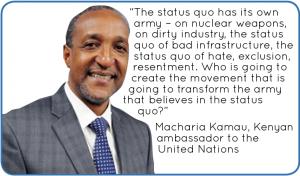 “I’ve come to realise, much to my surprise that the status quo on anything – on nuclear weapons, on dirty industry, the status quo of bad infrastructure, the status quo of hate, exclusion, resentment – the status quo has its own army.”
“I’ve come to realise, much to my surprise that the status quo on anything – on nuclear weapons, on dirty industry, the status quo of bad infrastructure, the status quo of hate, exclusion, resentment – the status quo has its own army.”
He said that each person needs to make their own decisions and follow through on them, asking: “Who is going to create the movement that is going to transform the army that believes in the status quo?”
At a panel dedicated to Colombian peace, Jean Arnault, head of the UN mission in Colombia noted that a particularly important theme in the process is participation and trust. Reinforcing much of the mobilisation message of a summit that set out to galvanise a broad contingent of peacemakers, Arnault called on young people, NGOs, and private entities to create an “army of implementation.”
Of course, perhaps the most important civil society voices in peace implementation – and in building new patterns of participation and trust – will be those who were themselves involved in the conflict. Arnault stressed the “importance of victims not as beneficiaries but as participants.” Government negotiator Sergio Jaramillo emphasised that reintegration of former FARC guerrillas is fundamentally about former combatants entering new roles as community contributors. Ultimately, he said, peace will have to be an “effort from all of society.”
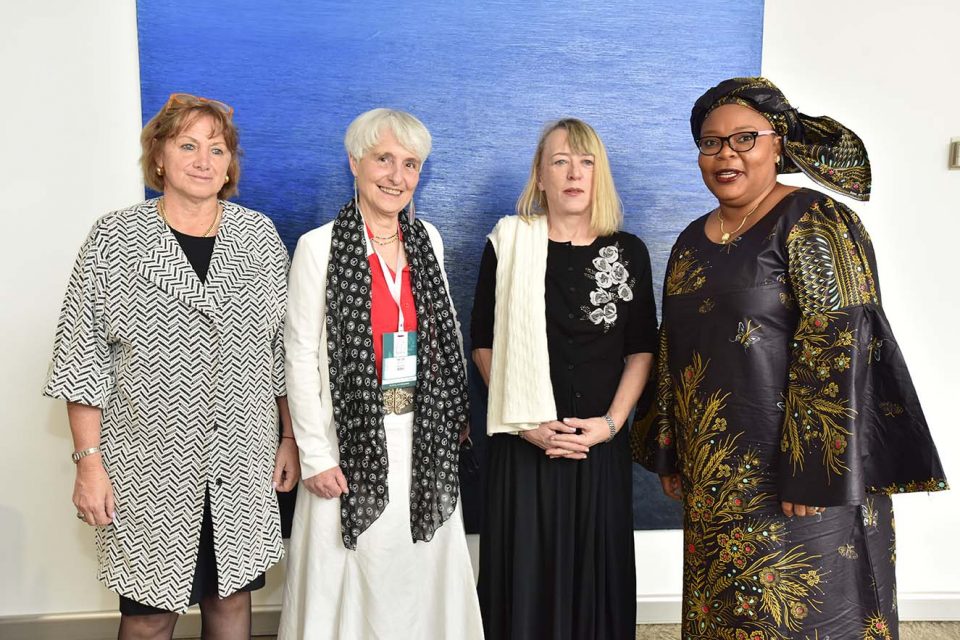
From left to right, Mónica de Greiff, Lisa Clark, Jody Williams, Leymah Gbowee. Photo: Cámera de Comercio
Women have crucial role to play
The five female laureates stressed that women’s rights are human rights, Phoebe Hopson finds out more.
‘Excluding women from peace is like trying to see by covering one eye.” So said Laureate Leymah Gbowee, leader of the women’s peace movement in Liberia that helped to bring an end to the country’s civil war.
Time and again the five female Nobel peace laureates participating in the 16th World Summit of Nobel Peace Laureates, along with other speakers, delivered a strong message: If Colombia wants to emerge as a post-conflict nation then women, now more than ever, have to be an integral part of the process.
At the opening ceremony, where each visiting laureate gave their own personal message, the lifelong activist for indigenous and women’s rights, Guatemalan Rigoberta Menchú humbly stood to give hers. Her message drew attention to the women who fight day and night as they live through the conditions of war, and she told of the urgent need to “make a pact against racism, machismo, homophobia, exclusion and intolerance.”
Involving women in the process goes far beyond gender stereotypes that women are somehow inherently more peaceful than men – there are women involved on all sides of the Colombian conflict.
Anti-landmine activist Jody Williams said that the laureates planned to meet with women’s organisations during their time in the city, and stressed, “human rights are the rights of men and women.” Involving women in the process goes far beyond gender stereotypes that women are somehow inherently more peaceful than men – there are women involved on all sides of the Colombian conflict. At the opening press conference, Williams asked why the role of women is even questioned in this day in age.
Historically, as in many other countries, women in Colombia have been absent from the negotiation table. Under Andrés Pastrana only three women participated in the signing of 18 agreements and later, former Colombian president Álvaro Uribe shamefully failed to include any women in his attempts at peace negotiations.
The Havana negotiations have been lauded for their “unprecedented” inclusion of a gender approach. It took a lot of lobbying from women’s groups to get a place at the table, but when they did, the gender subcommittee reviewed each chapter of the agreement. They ensured that specific clauses such as those about sexual violence or the economic, social and cultural rights of women were incorporated.
The gender breakdown of the negotiators was far from representative of Colombian society, indeed for the first 12 months of the four-year negotiations there was only one woman present at the table. However, the gender subcommittee – and the fact that 60% of the delegation of victims who participated in the negotiations were women – was a huge step forward.
And it shouldn’t end at the negotiating table. The female laureates reiterated that if women are excluded from post-conflict decision-making, it could jeopardise the implementation of the agreement. A report published by The Nobel Women’s Initiative highlighted that the 1976 Good Friday agreement may never have been signed or sustained if the women of Northern Ireland had not rallied behind the banner of the Peace People. Conversely, Gbowee warned: “Countries like Mozambique have fallen back into war by failing to include women in their peace processes.”
The same report indicates that the best predictor of whether a nation will be involved in armed conflict, internally or externally, is the level of violence against women within the society — and not, as is often assumed, levels of democracy or wealth. In Colombia, sexual violence towards women and girls is alarmingly high, in and outside of conflict zones. While high profile cases such as the death of Yuliana Andrea Somboní have brought the issue to public attention, the overriding opinion of women’s groups and international organisations is that not enough is being done.
The women who spoke at the 16th World Summit of Nobel Peace Laureates highlighted the challenges faced by women across the world, whether in Yemen, Liberia, Guatemala, Iran, Colombia or in the US. But they also brought a symbolic message to Colombia: that women can and will be a powerful force for change.
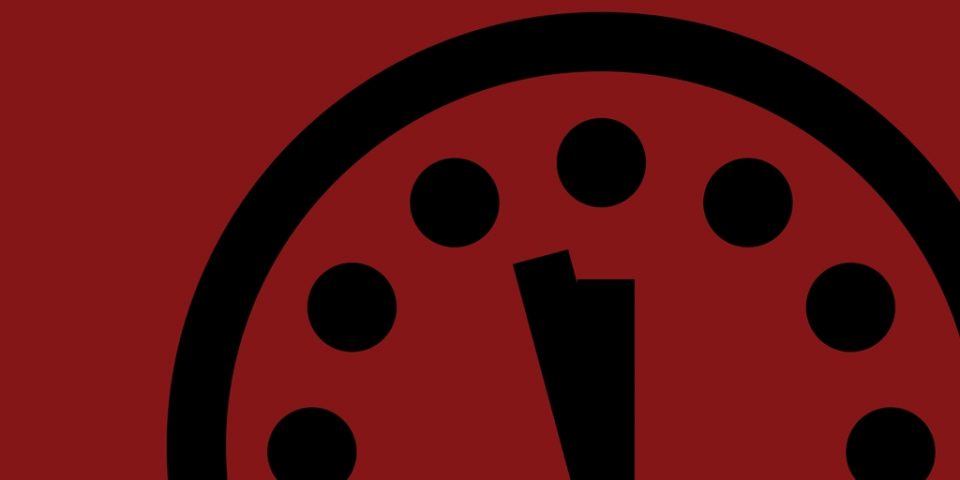
The Doomsday Clock now reads 2.5 minutes to midnight.
Two and a half minutes to midnight
The three days of talks and workshops were filled with a fair chunk of Colombia-focused discussions but, as Emma Newbery observes, it was also a time for the guests to contemplate some of the major issues facing the world right now.
Several speakers at the 16th World Summit of Nobel Peace Laureates discussed the failure of modern democracy – some citing the need to go back to the drawing board, while former president of Poland, Lech Wałęsa said that the “democracy we see today is a mockery of itself.”
Iranian lawyer Shirin Ebadi, who won a Nobel peace prize in 2003, emphasised that “The Middle East is burning.” She stressed that people there have been oppressed by their own governments and then further oppressed by other countries that discriminate against them by treating them as terrorists. An event that gathered visionaries and activists could not ignore the horrors occurring in Syria, described by one speaker as an “open wound in humanity’s conscience that bleeds endlessly.”
In the opening session, former president of Costa Rica Óscar Arias Sánchez invoked the oh-so-quotable and oh-so-apt opening lines of Charles Dickens’ A Tale of Two Cities. “It was the best of times, it was the worst of times, it was the age of wisdom, it was the age of foolishness, it was the epoch of belief, it was the epoch of incredulity, it was the season of light, it was the season of darkness, it was the spring of hope, it was the winter of despair.”
He said: “Without a doubt, this is the period in which we are living,” citing Colombia as an example of the ‘spring of hope’ and the forces of ignorance and growth of a big brother society as part of the ‘winter of despair’.
Lech Wałęsa and Lord Trimble (former first minister of Northern Ireland) both addressed European issues. Wałęsa spoke of the need for Europe today to identify foundations to base itself on and to make “a secular ten commandments.” He felt that the EU needed to establish shared values before working toward building democratic institutions or monetary systems, an idea echoed by Trimble as he said, “Don’t integrate coinage until you’ve done the big things first.”
Overall, the speakers expressed messages of optimism and possibility for the future, tempered with concern about the state of the world in which we live.
Without understating any of the global issues addressed, the panel on peace and sustainability’s discussion of the environment was particularly terrifying. Alongside positive sentiments about Agenda 2030 and the Paris Agreement, there were stark messages about the state of the planet.
Starker still were the observations of Ira Helfand, co-director of the International Association of Physicians for the Prevention of Nuclear War, who set out the proximity of a nuclear war in frightening detail. At the end of January, the Bulletin of Atomic Scientists moved the hands of the Doomsday Clock 30 seconds nearer to midnight, the closest it has been since 1953. We are now two and a half minutes to midnight on the symbolic clock that is meant to indicate how close we are to nuclear war and global catastrophe.
Helfand told the packed conference room that there are 14,000 nuclear warheads held by just nine countries and explained in detail what would happen if even a small percentage of that arsenal were used. “The risk that these might be used is growing,” he said. “It is important to remind ourselves of the danger that we face.”

Doomsday clock: minutes to midnight, 1947 – 2017.
The physicist explained that in the first thousandth of a second after a nuclear explosion, a firebomb hotter than the surface of the sun would form and vaporise everything within a two mile radius.
For 9 km in all directions, buildings would be ripped apart and the heat would be so intense it would melt whole cars.
Within a 25 km radius it would be so hot that anything flammable would burn, causing a giant firestorm stretching 50 km.
In Bogotá, nuclear attack would mean 10 million people dead. Ostensibly, people in the capital city shouldn’t have to worry about that kind of devastation because back in 1967, Latin America signed the Treaty of Tlatelolco (Treaty for the Prohibition of Nuclear Weapons in Latin America and the Caribbean) or OPANAL in Spanish.
The trouble is that Bogotá does have to worry. As does every other city – and citizen – on the planet. Because nuclear attack in the 21st Century will be more horrific even than the devastation of Hiroshima and Nagasaki: the damage of any modern nuclear engagement goes far beyond the direct effects of explosion.
For example, if India and Pakistan (countries that control just 0.05% of the world’s current nuclear arsenal) were to engage in nuclear combat, it would produce such a devastatingly huge cloud of smoke that it would completely change the world’s environment.
Temperatures across the planet would drop, causing such significant worldwide climate destruction that there would be widespread famine, possibly even sending us back to the climate conditions of the last ice age.
“This is the danger that we live with every day,” he said. “Nine countries are holding all of us, including their own citizens, hostage.”
But it’s not all doom and gloom. The UN will meet in March to define a treaty that could make it illegal to own nuclear weapons, eventually leading to their elimination.
And, in keeping with the message from the rest of the 16th World Summit of Nobel Peace Laureates, you can add your voice to the campaign to pressure the attendees to take this momentous step.
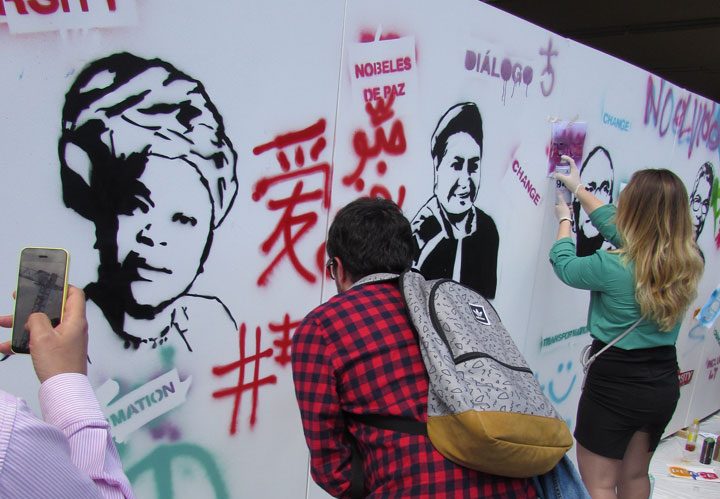
In keeping with the theme of inpsiring young people and civil participation attendees were encouraged to pick up a spray can. Photo: Emma Newbery
Hey Laureate! Leave them kids alone!
‘Youth are not the future, we are the now and we are changing the world’, says one of the 400 young people who participated in the conference. Oliver Pritchard gets down with the young people.
Time and again over the four days of the 16th World Summit of Nobel Peace Laureates, we hear the familiar refrain that the youth are the future. A whole pavilion is filled up with trendy domes in which they can meet various Nobel Laureates and affiliated organisations. Gaggles of excitable youths from around the globe flit between talks and venues like cheery geese. Much of the rhetoric aimed at them from the podiums is the folly of firebrands. Slogans and soundbites rain down and are met with rapturous applause.
In the closer confines of the discussion groups, a herd of largely American and European students are given the chance to discuss the Troubles with Lord Trimble. He’s more measured that many of his fellow Laureates and gives little in the way of soundbites or cheap rhetoric. He explains that many of the problems in Northern Ireland “start in the early years. Really early years. It comes from parents at home, and also in school from other pupils. In schools there is very strong peer pressure to conform. We have tried to change that in Northern Ireland but often there’s simply no cure or easy answer.” Pessimistic maybe, but honest.
He makes it clear that he’s a lone wolf at the summit in terms of politics. “There were times sitting up there on that platform when I wondered what I was doing there. Some of the speakers there – I won’t name names – have done serious damage to the minds of the children listening. I’m not joking. Really.” There’s a harsh firmness to his voice as he reiterates that last point, clearly defining his belief.
Young people should be prepared to be mentored, to be nurtured, to be accompanied on this journey.
All-round star of the 16th World Summit of Nobel Peace Laureates, Leymah Gbowee from Liberia, yet again strikes the right note. Her words about the need for experience and a blend of youth and wisdom are inspirational yet cautionary. An overly enthusiastic lad suggests that there is an “adultocracy running the world and it’s time for us to take charge”. Gbowee gently brings him down “Young people’s voices need to be a part of all the conversations that we have but I think this thing about generational change, I do not support. You should be at the table, it’s true! But is that as decision makers or observers with some input? When you were a little boy taking your first shaky steps, an adult was always there guiding you and once they were comfortable, they left you. There is no way I can say that all those [old female leaders in Africa] have to leave the stage so I can perform. I will make some mistakes which I need them to correct. Young people should be prepared to be mentored, to be nurtured, to be accompanied on this journey.”
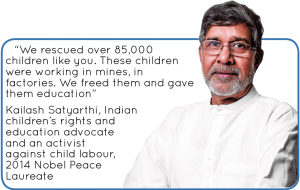 One man who truly believes in the importance of children is Kailash Satyarthi, Indian Laureate for 2014. His organisation works all over the world, including in Colombia. One lad gets up and explains that he owes his current position in life to Kailash’s work. Kailash’s answer is short and succinct: “I am proud of you. We are all proud of you, and I am very happy for the work that my sister, I can call her my sister, here in Colombia has done on my behalf.” He identifies problems for children nowadays “because they are concentrating too much on exams, on competing. They can become disconnected from their peers, from other children. It is important to create a child-friendly environment at home, in school and in society. Not only that, but to spend quality time with children and to listen to their views. After that, we can connect them to society. We need patience though.”
One man who truly believes in the importance of children is Kailash Satyarthi, Indian Laureate for 2014. His organisation works all over the world, including in Colombia. One lad gets up and explains that he owes his current position in life to Kailash’s work. Kailash’s answer is short and succinct: “I am proud of you. We are all proud of you, and I am very happy for the work that my sister, I can call her my sister, here in Colombia has done on my behalf.” He identifies problems for children nowadays “because they are concentrating too much on exams, on competing. They can become disconnected from their peers, from other children. It is important to create a child-friendly environment at home, in school and in society. Not only that, but to spend quality time with children and to listen to their views. After that, we can connect them to society. We need patience though.”
Towards the end of the question and answer session, a young lad bounds up. Kailash’s eyes are full of warmth as he treats the boy of eight with all the dignity he would for a fellow Laureate. It ends with him taking the child under his arm at the dais in a touching moment which exemplifies his commitment to his cause. He tells the boy that he has rescued “over 85,000 children like you. These children were working in mines, in factories. We freed them and gave them education”. The boy asks about homeschooling and Kailash is clear that “wherever one can get knowledge is good, not bad. But schools are the institutions where the children socialise, build confidence, learn relationships. They can get better opportunities for the future, because eventually you will have to use laboratories and such things which are not possible in the house.” It chimes with the advice given by Gbowee, that youth is all very nice and well, but there must be guidance from the wiser among us as well.
By Emma Newbery, Oli Pritchard, Madeline Walsh & Phoebe Hopson

